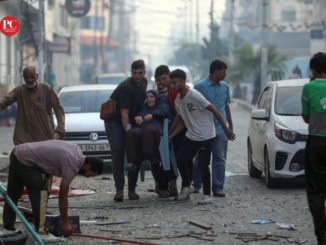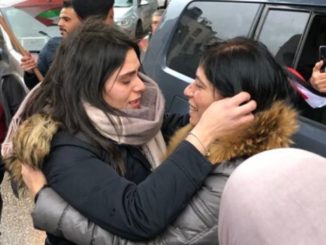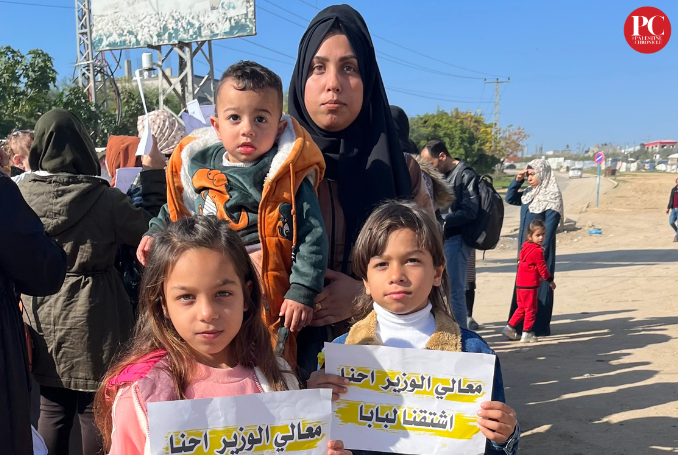
By Aseel Mousa
“I am alone here. I miss being surrounded by the love of my husband and family. Ramadan is around the corner, I yearn to spend it with them.” These were the words of Samar Ibrahim, a 28-year-old mother of three.
Samar lives in the Gaza Strip while her husband, Salama lives in the occupied West Bank. Samar is tired of having to handle the responsibility of her children alone, as Israel prevents her from moving to the West Bank and living with her husband.
“My husband, Salama Ibrahim, is originally from the West Bank. We got married in April 2012. We applied to change our address in 2011, as we decided to go back to the West Bank and live with our families.”
However, like thousands of Gaza-West Bank mixed Palestinian families, Salama and Samar suffer under Israel’s “separation policy”.
“In August 2021, Salama’s application to change the address was approved, but mine did not get any positive reply,” Samar told the Palestine Chronicle.
Salama applied for an exit permit, so he can pass through the Erez border to reunite with his family in the West Bank. The Israeli authorities issued his exit permit in January 2022. He waited for five months to be granted the permit.
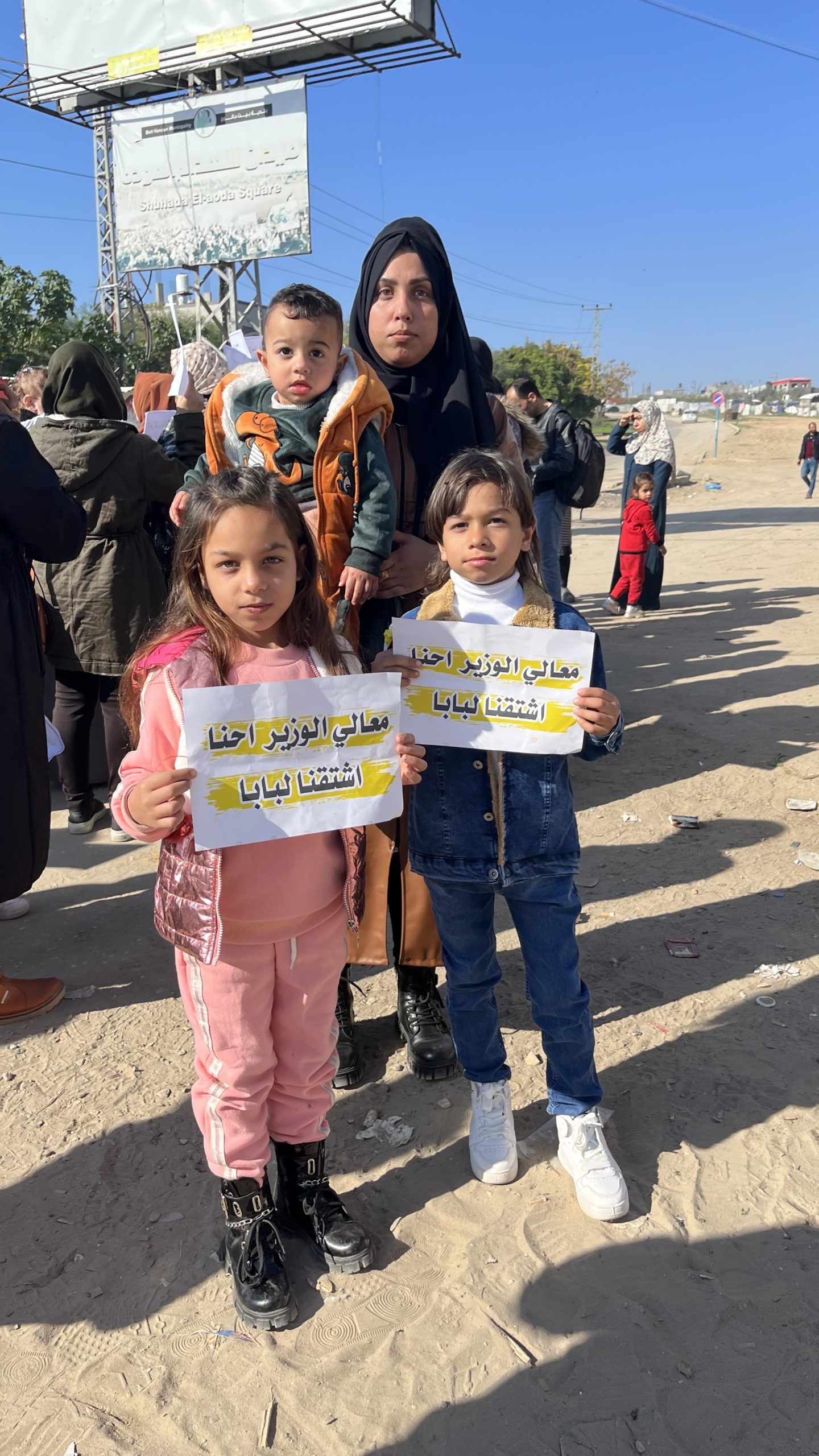
Since the land, sea and air blockade imposed on the Gaza Strip in 2007, Israel severely restricted the freedom of movement between Gaza and the West Bank.
Salama managed to travel, hoping that his wife’s ‘change address’ application would be approved soon so that she and their children would live with him.
“I am still waiting in vain, I feel so sad, afraid, and stressed out. I did everything I could. I have nothing more to do but wait more and more. I cry every night when I think how lonely I am without my husband. I am responsible for three kids,” Samar said.
“I always feel helpless when they ask me about their father and when they ask me to visit them at their school with their father, as their colleagues and friends,” Samar said.
The desperate mother said that she submitted an unlimited number of exit permit applications, but she kept receiving ‘request under review’ replies.
“I remember when I was waiting for the result of the exit permit application I submitted before Eid Al-Adha. I prayed all the time for it to be approved, but unfortunately, it wasn’t,” Samar added.
“My only daughter and two boys were so upset when I told them that we will not be able to spend the Eid holiday with their father.”
The process of changing the ID cards of the citizens from Gaza to the West Bank was relatively easier prior to the first Palestinian Intifada (uprising) in 1987.
As part of its separation policy, Israel restricted the Palestinian’s freedom of movement between Gaza and the West Bank in the 1990s. Thus, it completely isolated the Gaza Strip.
Palestinians who want to move between Gaza and the West Bank need to pass through Beit Hanoun (Erez) crossing by obtaining an exit permit from the Israeli authorities. Such permits are granted only in “exceptional humanitarian circumstances”, including critical medical, staff of international organizations, or students with scholarships to study abroad.
“My youngest child, Salameh, is one and a half years old, and he doesn’t recognize his father because when he left, he was only five months. I am afraid that months or years may pass without Salamah having the chance to know his father.”
The lack of opportunities in the Gaza Strip and the economic crisis resulting from the long Israeli blockade force the people of Gaza to seek jobs in the West Bank.
According to the Palestinian Central Bureau of Statistics (PCBS), the unemployment rate in Gaza stood at 44.1% in the second quarter of 2022, compared to 13.8% in the West Bank.
“The suffering of living in Gaza increases day by day, as I have to provide for my children with the little money that my husband sends us. He cannot find stable work, and whatever money he makes he uses most of it to pay his own rent.” It is a constant struggle
‘Losing My Family Forever’
The story of Samar and Salama is not unique.
Saleem Hussien, a 30-year-old father of three from Gaza. He lives in the Gaza Strip, while his family lives in the West Bank. He desperately needs the Israeli authorities to approve his application to change his address, so he can join his family.
“My wife, Miassar, and I married in June 2014, and we have three children: Mohammed, 9, Fatima, 8, and Sakher, 6. In 2011, my mother-in-law, who lives in the West Bank, applied for my wife to change her address and my family did the same for me too,” Saleem told the Palestine Chronicle.
Israel’s apartheid regime deprives hundreds of Palestinian families of living together when one spouse is from the West Bank and the other is from Gaza. In such cases, families have only harsh choices: either to live together in Gaza – under Israeli siege, enduring the financial hardships and being separated from family in the West Bank – or live apart, which means that children will be raised with only one of their parents.
“In August 2021, the Israeli authorities approved my wife’s application. After submitting applications for her and my children to get exit permits, they managed to leave the Gaza Strip on April 14, 2022, leaving me alone,” Saleem said.
According to the Israeli rights organization B’tselem, the number of Palestinian families affected by Israel’s policy is estimated at several thousand.
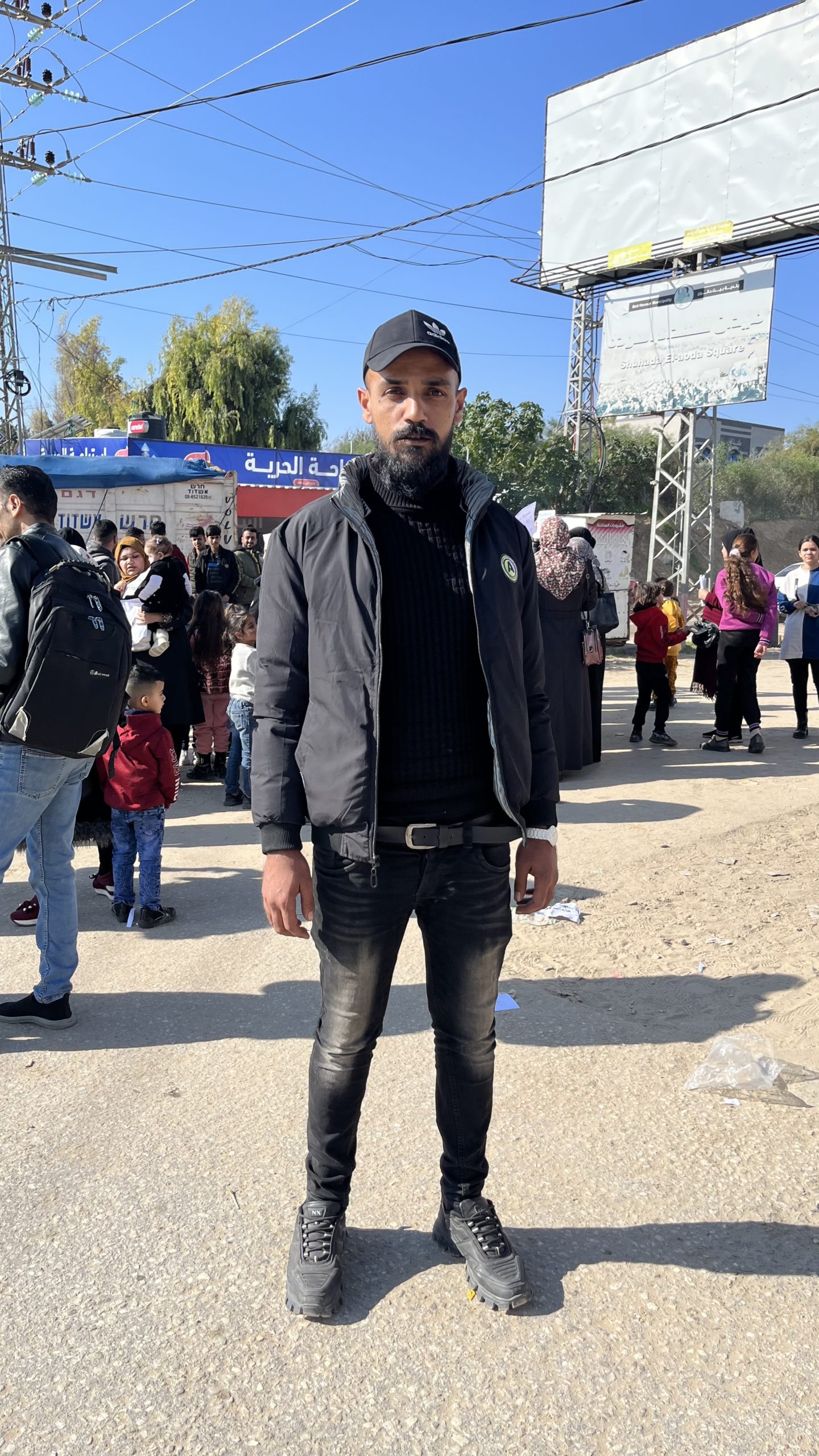
This Israeli policy violates the rights of Palestinian women, children, and men, who are forced to live apart from their families.
Israel forces them to live a life of loneliness, while their families are alive and nothing keeps them apart except for an arbitrary Israeli border fence that has denied them the freedom to live normal lives.
“Israel deprived me of my mother for 20 years and now it deprived me of my wife and kids. I just sit every night talking to their photos,” Saleem said.
“My youngest son Sakher does not know me well, and his siblings speak to me on the phone, blaming me for not being with them.”
Saleem was working as an electrician, but now he has no job due to the harsh financial conditions in Gaza. He barely manages to send his wife little money for her and their children.
Even though Israel claims that it has no responsibilities towards the people of Gaza after implementing the so-called Disengagement Plan in 2005, it still almost controls countless aspects of their lives: Their economic situation, their education, their health and their close relationships with spouses, parents and other relatives.
For some, the situation is more difficult than others. Saleem, for example, suffers from kidney disease and his health condition is rapidly deteriorating.
“I need my family with me. I need to be with them. This will help me psychologically,” Saleem said.
“I cannot wait to reunite with my family. I have been suffering for many years due to this situation. I did not attend my sister’s wedding, which was held in the West Bank, because the Israeli authorities rejected my exit permit application. Now, I am terrified that I may lose my family forever, and losing them means losing my whole life.”
‘Like an Orphan’
Odai Salem, 23, lives alone after his family received approval from the Israeli authorities to change their address and live in the West Bank.
“I live in my aunt’s house, but I still feel lonely. I need my mom, father, and siblings. I haven’t seen my father since 2012,” Odai said.
In 2012, Odai’s father left Gaza to work in construction and to live in the West Bank, around 80 kilometers away. He thought it would take him a few days to arrange for his family in Gaza to join him in the West Bank. He was wrong. Seven years later, the family is still waiting for reunification.
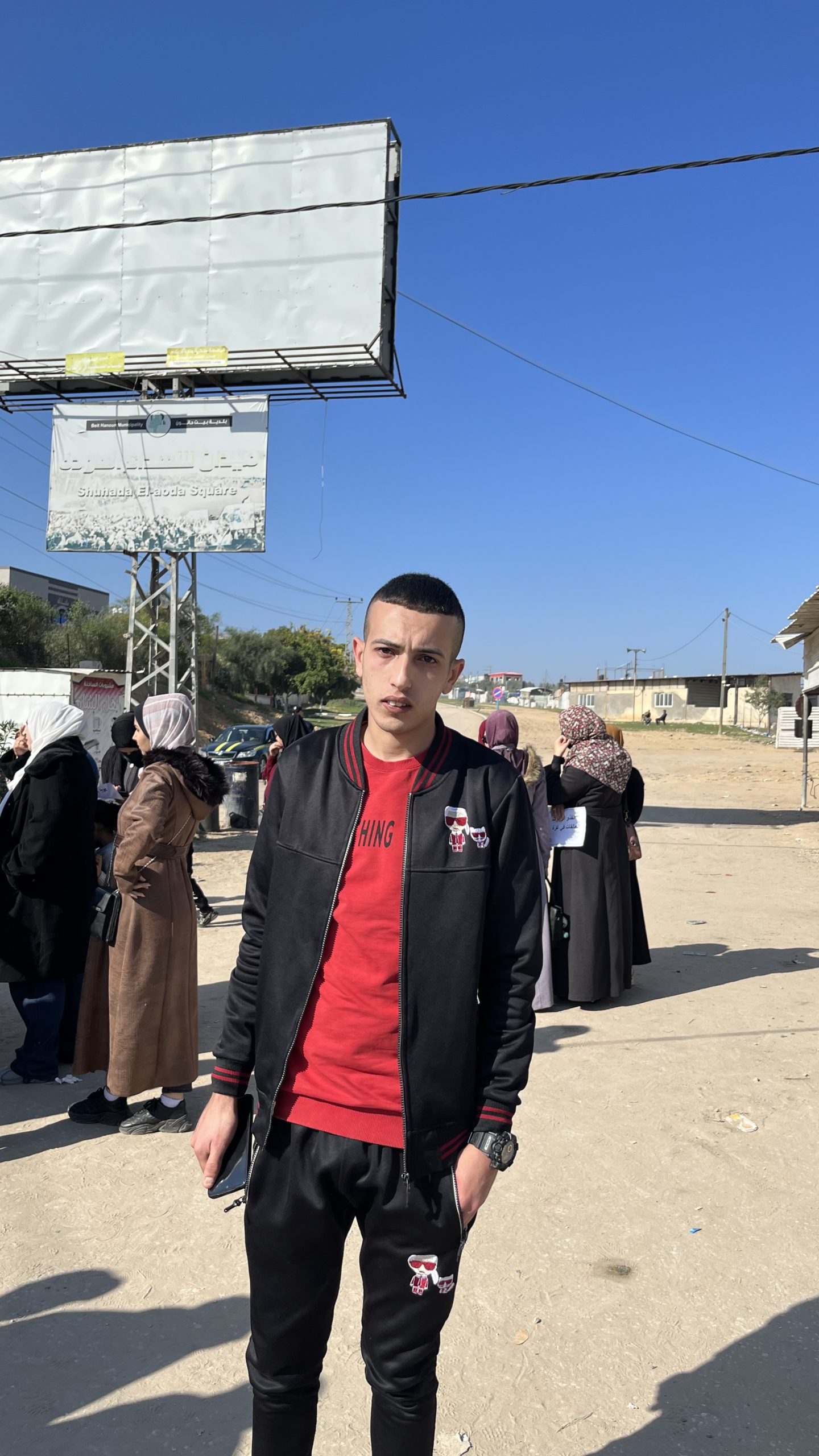
“In January 2021, my mother and siblings got approval from Israel to change their address, so they moved to reunite with my father, but I couldn’t accompany them, because the Israeli authorities prevented me from changing my address,” Odai told the Palestine Chronicle.
Odai was not able to study at the university, because he has no source of income. His father can barely cover the family’s expenses in the West Bank and can only send him a little money.
“It is unbearable! I feel like an orphan without my parents. I don’t know how many years will pass without my family.”
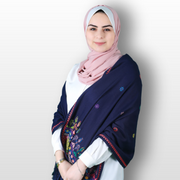
– Aseel Mousa is a Gaza-based Palestinian journalist. She graduated from Al-Azhar University in 2020 and she has been working as journalist and translator ever since. Her articles appeared in several online publications. She contributed this article to The Palestine Chronicle.




